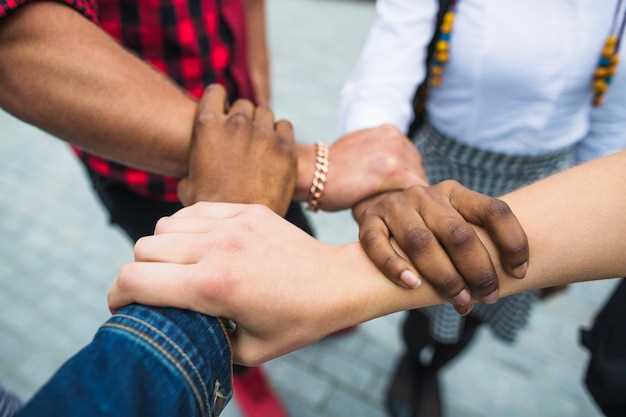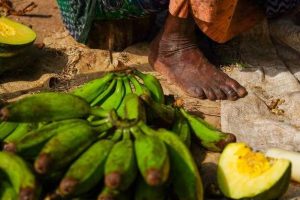
Within the global landscape, there exists a vibrant and dynamic community that transcends borders and cultures. This community, known as the Haitian diaspora, is a testament to the resilience and strength of the Haitian people. Spread across various corners of the world, the diaspora represents a rich tapestry of experiences, talents, and aspirations.
At its core, the concept of engagement within the Haitian diaspora is about fostering connections, building bridges, and creating opportunities for collaboration. It is about harnessing the collective power of individuals who share a common heritage and a shared vision for the future. Through engagement, the diaspora can play a pivotal role in shaping the socio-economic and political landscape of Haiti, while also contributing to the development of their adopted countries.
Empowering the Haitian diaspora involves recognizing the unique strengths and talents that individuals bring to the table. It is about creating an environment that encourages and supports entrepreneurship, innovation, and leadership. By leveraging these strengths, the diaspora can become a driving force for positive change, both within Haiti and in the countries they now call home.
Collaboration lies at the heart of diaspora engagement. It is through collaboration that ideas are born, partnerships are formed, and transformative projects are realized. By fostering a culture of collaboration, the Haitian diaspora can tap into the collective wisdom and expertise of its members, creating a powerful network that transcends geographical boundaries. This network can serve as a platform for knowledge exchange, mentorship, and resource sharing, ultimately leading to sustainable development and growth.
Understanding the Haitian Diaspora: A Global Network of Potential

The Haitian diaspora represents a diverse and interconnected global network of individuals who share a common heritage and connection to Haiti. This network spans across various countries and regions, creating a rich tapestry of experiences, skills, and perspectives that can be harnessed for the benefit of Haiti and its development.
Exploring the Cultural and Historical Significance
Within the Haitian diaspora, there exists a wealth of cultural and historical significance that contributes to the unique identity of this global network. From the rich traditions and folklore passed down through generations to the resilience and strength demonstrated throughout Haiti’s history, understanding these cultural and historical aspects is crucial in appreciating the potential of the diaspora.
By recognizing and celebrating the cultural heritage of the Haitian diaspora, opportunities for collaboration and engagement can be fostered. This can include initiatives that promote cultural exchange, such as art exhibitions, music festivals, and storytelling events, allowing the diaspora to connect with their roots and share their experiences with others.
Unleashing the Potential for Economic Development
Beyond its cultural significance, the Haitian diaspora also holds immense potential for economic development in Haiti. Many members of the diaspora possess valuable skills, expertise, and entrepreneurial spirit that can contribute to the growth of various sectors in the country.
Engaging the diaspora in economic initiatives can involve creating platforms for knowledge sharing, mentorship programs, and investment opportunities. By leveraging the expertise and resources within the diaspora, Haiti can tap into a global network of professionals, entrepreneurs, and investors who are passionate about contributing to the country’s economic progress.
Furthermore, fostering partnerships between the Haitian diaspora and local businesses and organizations can lead to mutually beneficial collaborations. This can involve knowledge transfer, technology sharing, and joint ventures that leverage the strengths and resources of both parties.
In conclusion, understanding the Haitian diaspora as a global network of potential is essential for harnessing the diverse skills, experiences, and resources that exist within this community. By recognizing the cultural and historical significance and unleashing the economic potential, collaborative opportunities can be created to support Haiti’s development and engage the diaspora in meaningful ways.
Strengthening Economic Ties: Encouraging Investment and Entrepreneurship
In this section, we explore the potential for enhancing economic relationships and fostering investment and entrepreneurship within the Haitian community. By creating an environment that encourages financial growth and innovation, we can empower individuals to contribute to the economic development of Haiti and strengthen ties between the diaspora and the homeland.
Fostering Investment Opportunities
One key aspect of strengthening economic ties is to promote investment opportunities within the Haitian community. By providing information and resources on potential investment sectors, such as agriculture, tourism, and renewable energy, we can encourage diaspora members to invest in Haiti’s future. This not only brings financial benefits but also creates a sense of ownership and pride in contributing to the country’s growth.
Supporting Entrepreneurship

Another crucial element in strengthening economic ties is to support and nurture entrepreneurship within the Haitian diaspora. By providing access to mentorship programs, business development resources, and networking opportunities, we can empower aspiring entrepreneurs to turn their ideas into successful ventures. Encouraging entrepreneurship not only creates economic opportunities but also fosters innovation and drives sustainable growth.
Education and Skills Development: Empowering the Haitian Diaspora
In this section, we will explore the significance of education and skills development in empowering the Haitian diaspora community. By focusing on enhancing knowledge and honing skills, individuals within the diaspora can unlock their full potential and contribute to the growth and development of both their host countries and Haiti.
Unlocking Potential through Education
Education plays a pivotal role in empowering individuals within the Haitian diaspora. By acquiring knowledge and skills, individuals can broaden their horizons, gain a deeper understanding of the world, and develop critical thinking abilities. Education provides the foundation for personal growth and empowers individuals to pursue their aspirations and goals.
Moreover, education equips individuals with the necessary tools to actively participate in the economic, social, and political spheres of their host countries. By acquiring relevant qualifications and skills, members of the Haitian diaspora can access better employment opportunities, contribute to the local workforce, and ultimately improve their socio-economic status.
Fostering Skills Development for Economic Empowerment
In addition to education, skills development is crucial in empowering the Haitian diaspora. By focusing on acquiring and enhancing specific skills, individuals can increase their employability and contribute to the economic growth of both their host countries and Haiti.
Skills development can take various forms, including vocational training, entrepreneurship programs, and mentorship initiatives. These opportunities enable individuals to gain practical skills and knowledge that are directly applicable to the job market. By fostering skills development, the Haitian diaspora can become a valuable resource for innovation, entrepreneurship, and economic development.
Furthermore, skills development can also facilitate the transfer of knowledge and expertise back to Haiti. By equipping members of the diaspora with the necessary skills, they can contribute to capacity-building efforts in their home country. This transfer of skills and knowledge can help address the challenges faced by Haiti and promote sustainable development.
In conclusion, education and skills development are essential in empowering the Haitian diaspora. By investing in education and providing opportunities for skills development, individuals within the diaspora can unlock their full potential, contribute to the growth of their host countries, and actively participate in the development of Haiti.
Cultural Preservation and Exchange: Celebrating Haitian Heritage
In this section, we will explore the importance of preserving and exchanging Haitian culture, highlighting the rich heritage and traditions that make Haiti unique. By fostering a sense of pride and appreciation for Haitian heritage, we can create opportunities for cultural exchange and promote a deeper understanding of the country’s history and traditions.
One of the key aspects of cultural preservation is the safeguarding of traditional practices, such as music, dance, and storytelling. These forms of expression have been passed down through generations and serve as a vital link to Haiti’s past. By celebrating and promoting these cultural practices, we can ensure their continued existence and provide a platform for Haitian artists and performers to showcase their talents.
Furthermore, cultural exchange plays a crucial role in promoting understanding and appreciation between different communities. By sharing Haitian traditions, cuisine, and art with others, we can foster a sense of curiosity and respect for the diversity of cultures around the world. This exchange of ideas and experiences not only enriches our own understanding but also creates opportunities for collaboration and mutual learning.
A key platform for cultural exchange is through organized events and festivals that showcase Haitian heritage. These gatherings provide a space for the Haitian diaspora and the wider community to come together and celebrate the vibrant culture of Haiti. Through music performances, art exhibitions, and culinary experiences, these events create a sense of unity and pride in Haitian identity.
Additionally, digital platforms and social media play a significant role in promoting cultural exchange and preserving Haitian heritage. Online communities and platforms allow for the sharing of stories, traditions, and experiences, reaching a global audience and connecting individuals who may not have access to physical events. By utilizing these digital tools, we can ensure that Haitian culture continues to thrive and reach new audiences.
| Benefits of Cultural Preservation and Exchange: |
|---|
| 1. Preservation of traditional practices and customs |
| 2. Fostering understanding and appreciation between communities |
| 3. Creating opportunities for collaboration and mutual learning |
| 4. Celebrating Haitian identity and fostering a sense of pride |
| 5. Reaching a global audience through digital platforms |
Health and Social Services: Supporting the Well-being of the Haitian Diaspora
In this section, we will explore the crucial role of health and social services in ensuring the overall well-being of the Haitian community living abroad. By providing essential support and resources, these services contribute to the physical, mental, and social welfare of individuals within the Haitian diaspora.
Health Services:
Access to quality healthcare is vital for maintaining the health and well-being of the Haitian diaspora. By offering comprehensive medical services, including preventive care, diagnosis, and treatment, healthcare providers play a crucial role in addressing the specific health needs of this community. These services encompass a wide range of areas, such as primary care, reproductive health, mental health, and chronic disease management.
Efforts should be made to ensure that healthcare services are culturally sensitive and linguistically accessible to the Haitian diaspora. This involves providing interpreters, hiring healthcare professionals who are familiar with Haitian culture and language, and offering educational materials in Creole. By doing so, healthcare providers can establish trust and effectively communicate with individuals, ultimately improving health outcomes and promoting overall well-being.
Social Services:
Beyond physical health, social services are instrumental in supporting the well-being of the Haitian diaspora. These services encompass a wide range of areas, including but not limited to, housing assistance, employment support, language classes, and cultural integration programs. By addressing the social determinants of health, such as access to stable housing and employment opportunities, social services contribute to the overall quality of life for individuals within the Haitian diaspora.
Furthermore, social services play a crucial role in fostering community connections and providing a support network for individuals. By organizing cultural events, support groups, and community outreach programs, social service providers create spaces for Haitian diaspora members to connect, share experiences, and access resources. These initiatives not only enhance social cohesion but also contribute to the overall well-being and resilience of the community.
In conclusion, health and social services are essential components in supporting the well-being of the Haitian diaspora. By providing accessible and culturally sensitive healthcare and addressing social determinants of health, these services contribute to the overall health and quality of life for individuals within the community. Additionally, social services foster community connections and provide a support network, enhancing the resilience and well-being of the Haitian diaspora.
Government Initiatives and Partnerships: Facilitating Diaspora Engagement
The government plays a crucial role in fostering and facilitating the engagement of the Haitian diaspora. Through various initiatives and partnerships, the government aims to create opportunities for collaboration and support the involvement of the diaspora in the development of Haiti.
One key aspect of government initiatives is the establishment of programs that encourage diaspora members to contribute their skills, expertise, and resources to the country. These programs provide a platform for diaspora engagement in areas such as entrepreneurship, education, healthcare, infrastructure development, and cultural preservation.
Government partnerships with diaspora organizations and networks also play a vital role in facilitating engagement. By collaborating with these organizations, the government can leverage their expertise, networks, and resources to implement projects and initiatives that benefit both the diaspora and Haiti. These partnerships create a mutually beneficial relationship where the diaspora can contribute to the development of their home country while also gaining a sense of connection and involvement.
Furthermore, the government recognizes the importance of creating an enabling environment for diaspora engagement. This includes implementing policies and regulations that support diaspora investments, facilitating remittances, and addressing any barriers or challenges that diaspora members may face when seeking to contribute to Haiti’s development.
Government initiatives and partnerships also focus on promoting diaspora engagement through cultural and educational exchanges. By fostering cultural exchanges, the government aims to strengthen the connection between the diaspora and Haiti’s cultural heritage, while educational exchanges provide opportunities for knowledge transfer and capacity building.
In conclusion, government initiatives and partnerships play a crucial role in facilitating diaspora engagement. By creating opportunities, collaborating with diaspora organizations, and creating an enabling environment, the government aims to harness the skills, resources, and expertise of the diaspora for the development of Haiti.











